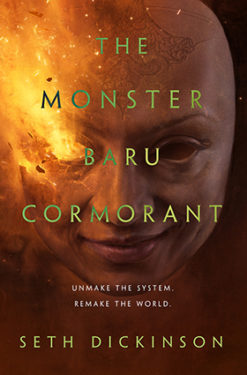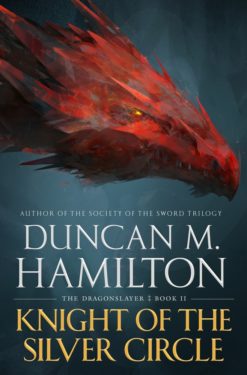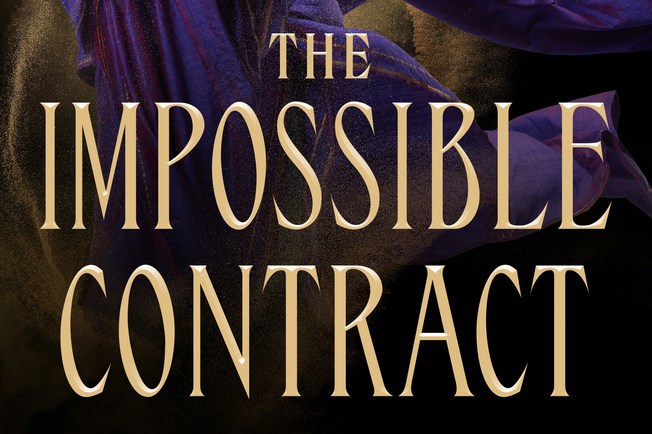$2.99 eBook Sale: May 2020
Welcome, May! We’re celebrating the warmer weather with some new, month long ebook deals. Check out what Tor eBooks you can grab for $2.99 throughout the entire month below:
 People of the Songtrail by Kathleen O’Neal Gear and W. Michael Gear
People of the Songtrail by Kathleen O’Neal Gear and W. Michael Gear
On the shores of what is now northeastern Canada, a small group of intrepid settlers have landed, seeking freedom to worship and prosper far from the religious strife and political upheaval that plague a war-ridden Europe…500 years before Columbus set sail. While it has long been known that Viking ships explored the American coast, recent archaeological evidence suggests a far more vast and permanent settlement. It is from this evidence that archaeologists and early American history experts Kathy and Michael Gear weave their extraordinary tale.
opens in a new window opens in a new window
opens in a new window opens in a new window
opens in a new window opens in a new window
opens in a new window opens in a new window
opens in a new window opens in a new window
opens in a new window
 The Monster Baru Cormorant by Seth Dickinson
The Monster Baru Cormorant by Seth Dickinson
The traitor Baru Cormorant is now the cryptarch Agonist—a secret lord of the empire she’s vowed to destroy. Hunted by a mutinous admiral, haunted by the wound which has split her mind in two, Baru leads her dearest foes on an expedition for the secret of immortality. But Baru’s heart is broken, and she fears she can no longer tell justice from revenge…or her own desires from the will of the man who remade her.
opens in a new window opens in a new window
opens in a new window opens in a new window
opens in a new window opens in a new window
opens in a new window opens in a new window
opens in a new window opens in a new window
opens in a new window
 Bowl of Heaven by Gregory Benford and Larry Niven
Bowl of Heaven by Gregory Benford and Larry Niven
The limits of wonder are redrawn as a human expedition to another star system is jeopardized by an encounter with an astonishingly immense artifact in interstellar space: a bowl-shaped structure half-englobing a star, with a habitable area equivalent to many millions of Earths…and it’s on a direct path heading for the same system as the human ship.
opens in a new window opens in a new window
opens in a new window opens in a new window
opens in a new window opens in a new window
opens in a new window opens in a new window opens in a new window
opens in a new window opens in a new window
 The Impossible Contract by K. A. Doore
The Impossible Contract by K. A. Doore
An assassin’s reputation can mean life or death. This holds especially true for Thana Basbowen, daughter of the legendary Serpent, who rules over Ghadid’s secret clan of assassins. When a top-tier contract drops in her lap — death orders against foreign ambassador Heru Sametket — Thana seizes the opportunity. Yet she may be in over her head. Heru wields blasphemous powers against his enemies, and Thana isn’t the only person after his life: even the undead pursue him, leaving behind a trail of horror.
opens in a new window opens in a new window
opens in a new window opens in a new window
opens in a new window opens in a new window
opens in a new window opens in a new window opens in a new window
opens in a new window opens in a new window
 Knight of the Silver Circle by Duncan M. Hamilton
Knight of the Silver Circle by Duncan M. Hamilton
As the lines between enemy and ally blur, Guillot dal Villerauvais is drawn farther into the life and service he had left far behind. Solène attempts to come to terms with the great magical talent she fears is as much a curse as a blessing, while the Prince Bishop’s quest for power twists and turns, and takes on a life of its own. With dragons to slay, and an enemy whose grip on the kingdom grows ever tighter, Gill and his comrades must fight to remain true to themselves, while standing at the precipice of a kingdom in peril.
opens in a new window opens in a new window
opens in a new window opens in a new window
opens in a new window opens in a new window
opens in a new window opens in a new window opens in a new window
opens in a new window opens in a new window








